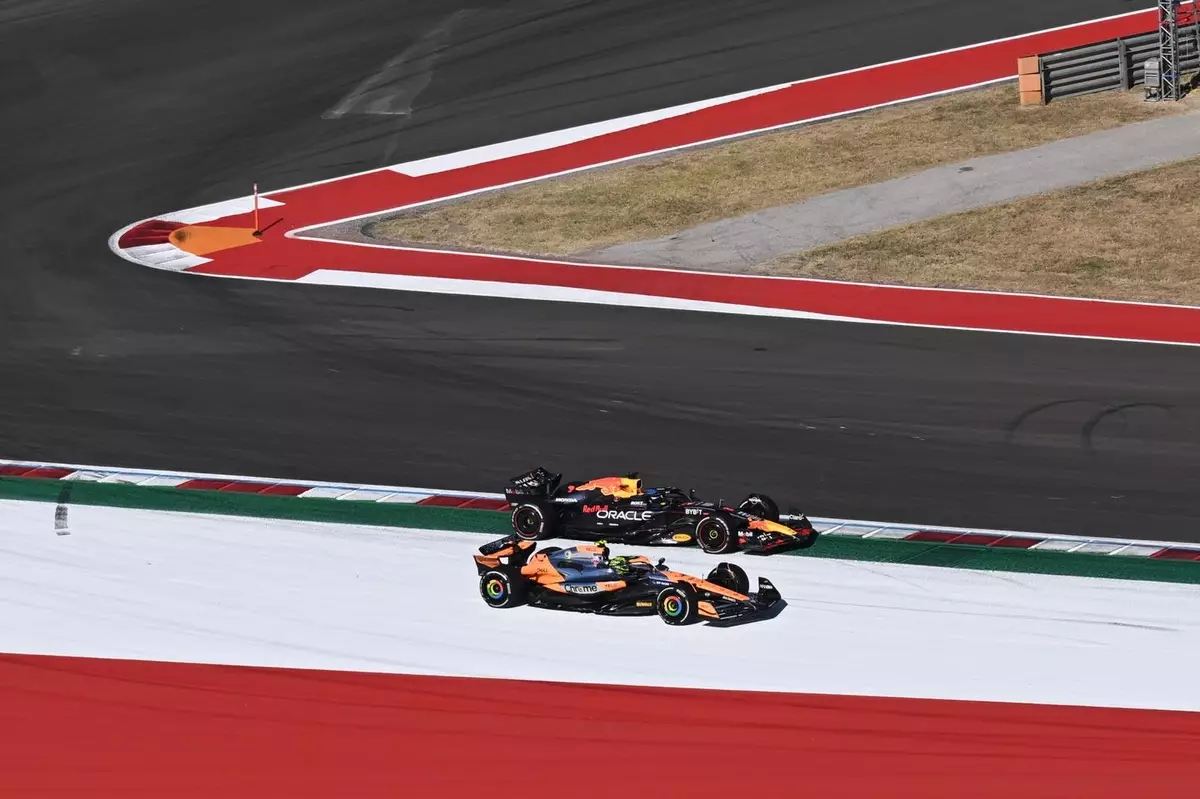The realm of Formula 1 is replete with tension, rivalry, and thrilling moments, but it is inevitably also a stage for controversies and disputes. One of the most recent affairs in the world of F1 involves McLaren’s challenge against the penalty imposed on their driver, Lando Norris, during the United States Grand Prix. The unfolding of this situation highlights the intricate relationship between the teams, drivers, and the regulatory framework established by the FIA.
During the hotly contested United States Grand Prix, Lando Norris found himself embroiled in a duel with Red Bull’s Max Verstappen. In the final laps of the race, Norris overtook Verstappen but did so while driving off the designated track limits, resulting in a five-second penalty that altered not only the race’s outcome but potentially the championship standings. This move, while viewed by many as an aggressive and skillful maneuver, was deemed a violation by the stewards, sparking immediate discussions about the fairness and consistency of penalties in Formula 1.
The penalty placed Norris in a precarious position; he crossed the finish line in a position that was ultimately altered by the five-second sanction. Such decisions have a profound impact on a championship where every point counts, and teams are hyper-aware of how each race influences their team’s standing in the Constructors‘ Championship.
In a move that reflects McLaren’s determination to seek redress, the team has lodged a request for a right of review—an official avenue built into the FIA’s regulations that allows for reconsideration of specific decisions made by the stewards when new, significant evidence comes to light. Article 14.1.1 of the FIA’s International Sporting Code outlines the conditions necessary for such a review, emphasizing that the evidence must be significant and relevant, and must not have been available at the time the original decision was made.
As McLaren prepares to present its case, they must not only provide new evidence but also establish that this evidence has a substantial bearing on the decision regarding Norris’s penalty. This sets a high bar for the team, as they need to move beyond mere dissatisfaction with the ruling to showcase new insights that warrant another look.
The current situation echoes a similar incident involving Mercedes during the 2021 Brazilian Grand Prix. In that case, Mercedes argued that additional footage showed crucial details that were not accessible to the stewards during their initial ruling concerning Verstappen’s racing conduct against Lewis Hamilton. However, the stewards ultimately ruled that while the footage was indeed new, it did not provide sufficient grounds to warrant further review. This case serves as a cautionary tale for McLaren—previous attempts to challenge stewards’ decisions have sometimes faltered, particularly when the new evidence presented is deemed inconsequential.
As McLaren sets out to build its case, they face the challenge of convincingly demonstrating the significance of their evidence while navigating the uncertainties that the stewards might pose.
The outcome of this review could have broader ramifications, not just for Norris but potentially for the championship dynamics between competing teams. A successful appeal could see Norris reinstated to his original finishing position of third, altering the classifications from the race at Austin. This scenario invites an examination of the balance of power in the sport, shedding light on the intense rivalries that serve as the backbone of racing seasons.
Norris’s drive is being questioned as a result of his on-track behavior, but the crux of the discussion is more than just this isolated incident—it’s about the consistency of regulatory enforcement and the transparent application of rules within Formula 1, which can dramatically affect a team’s strategy moving forward.
As the right of review hearing approaches, all eyes will be on McLaren and the FIA’s stewards. This incident serves as a potent reminder of the complexity of motorsport governance and the delicate interplay between competitive instincts and regulatory frameworks. As McLaren navigates this process, the outcomes will likely reverberate through the paddock, influencing not just their fortunes but those of rival teams as well. The unfolding drama will undoubtedly add another chapter to the storied legacy of Formula 1, where every decision—both on and off the track—can shape the course of a season.


Napsat komentář